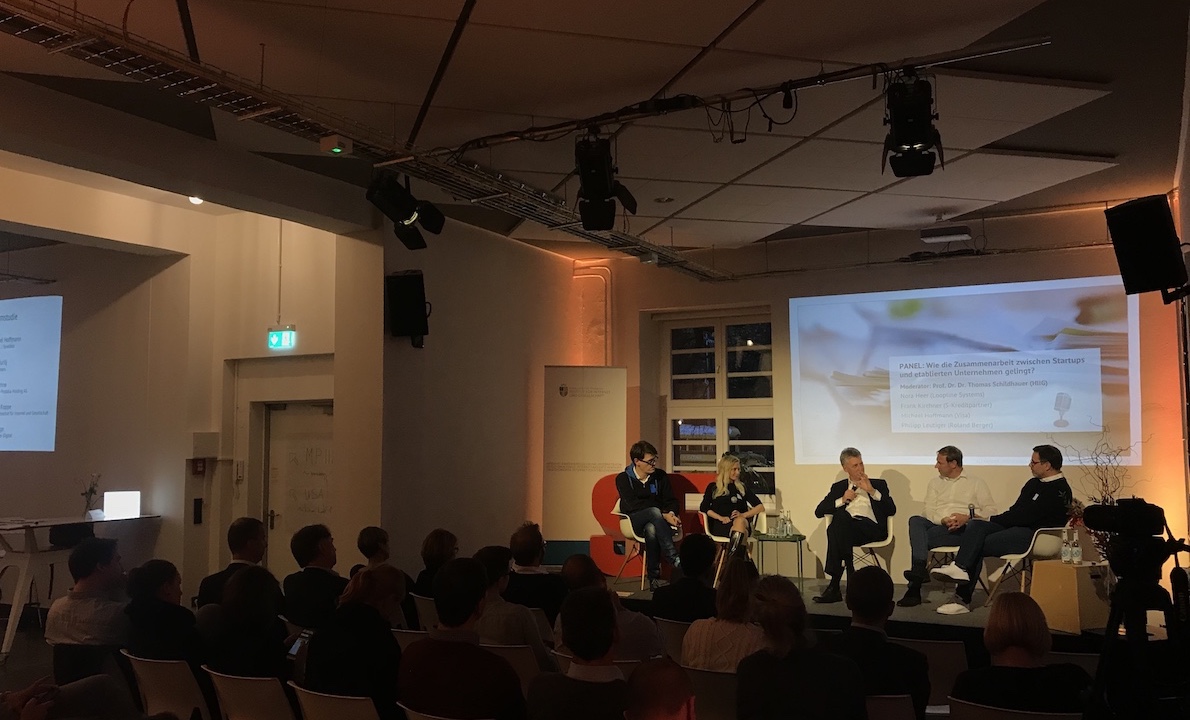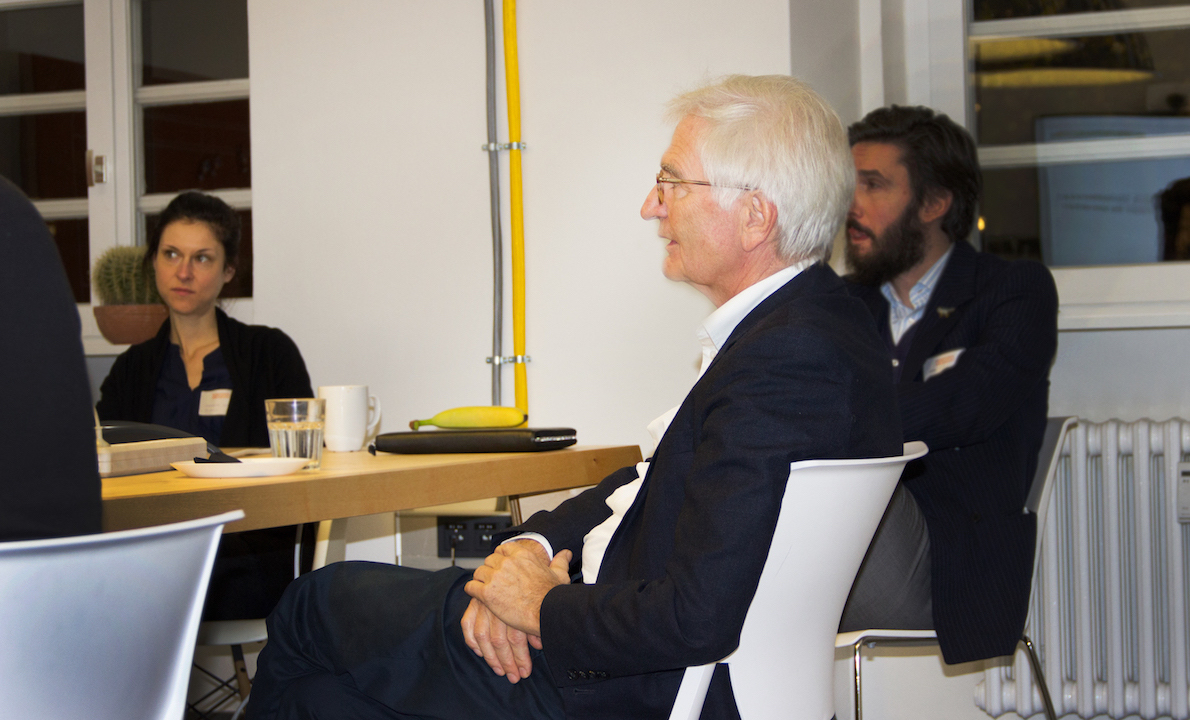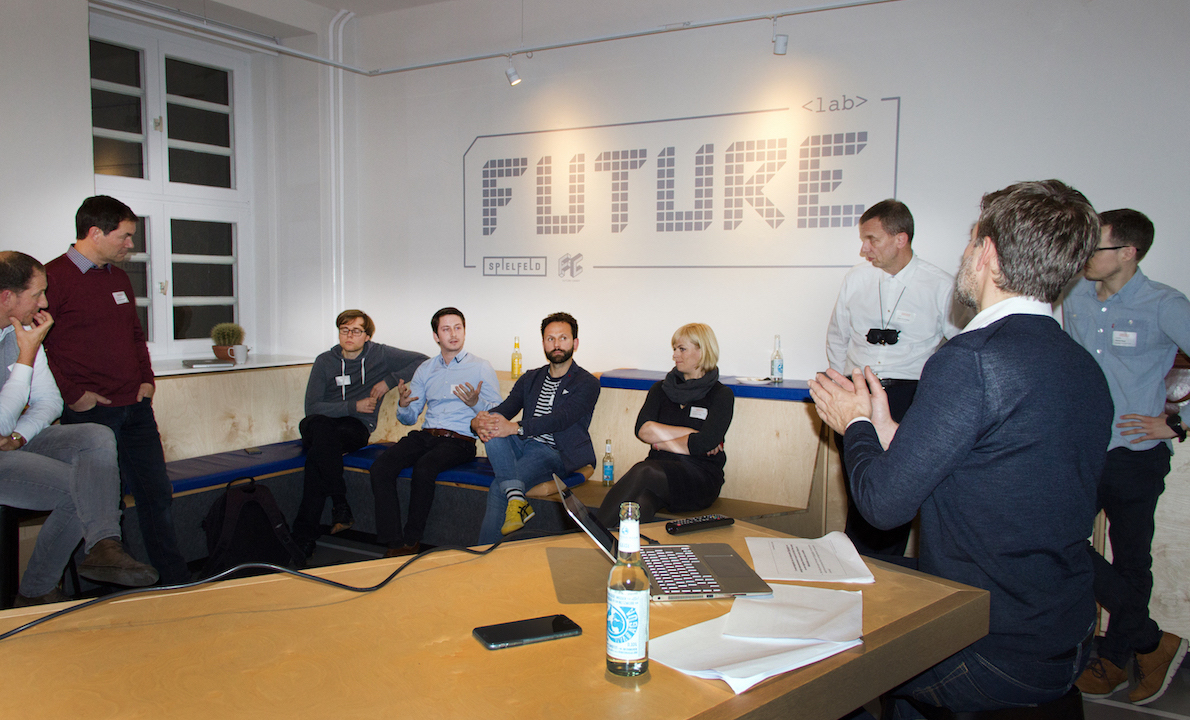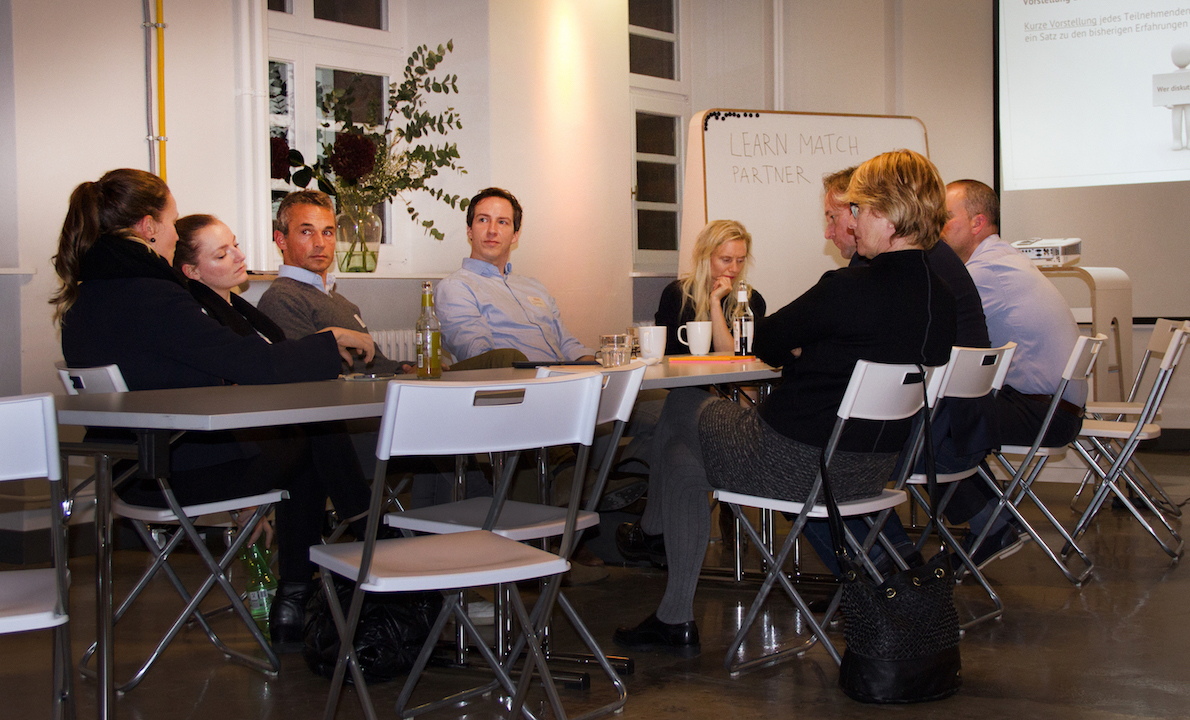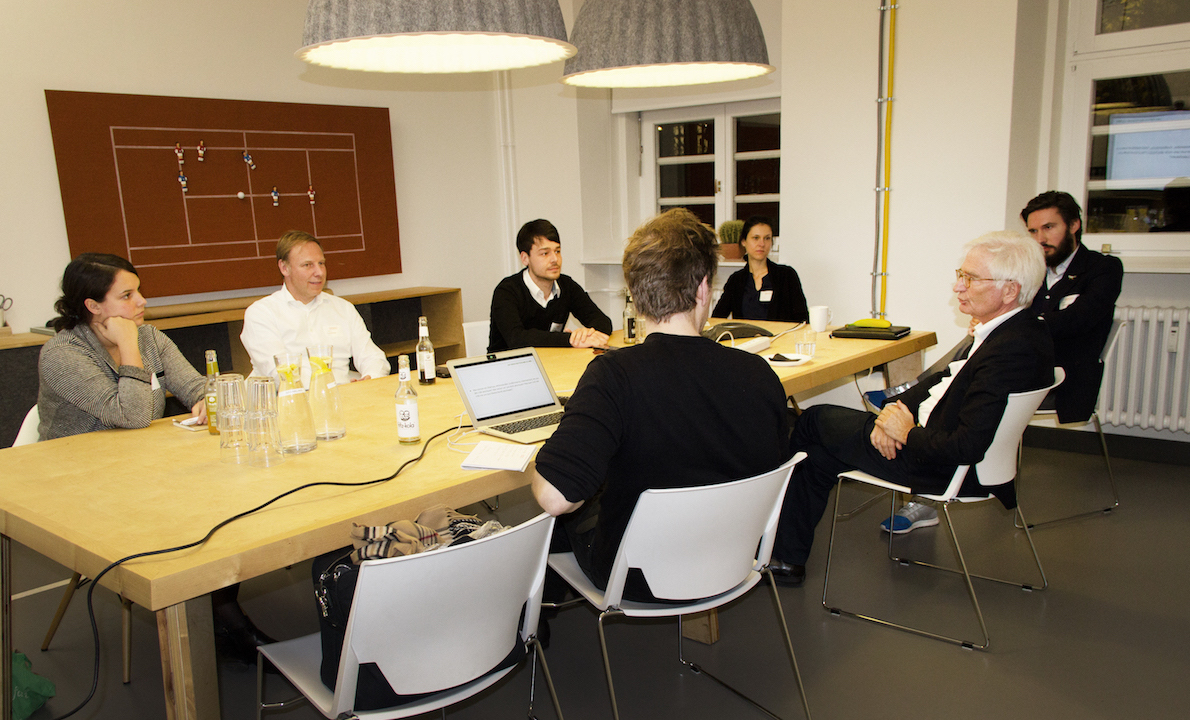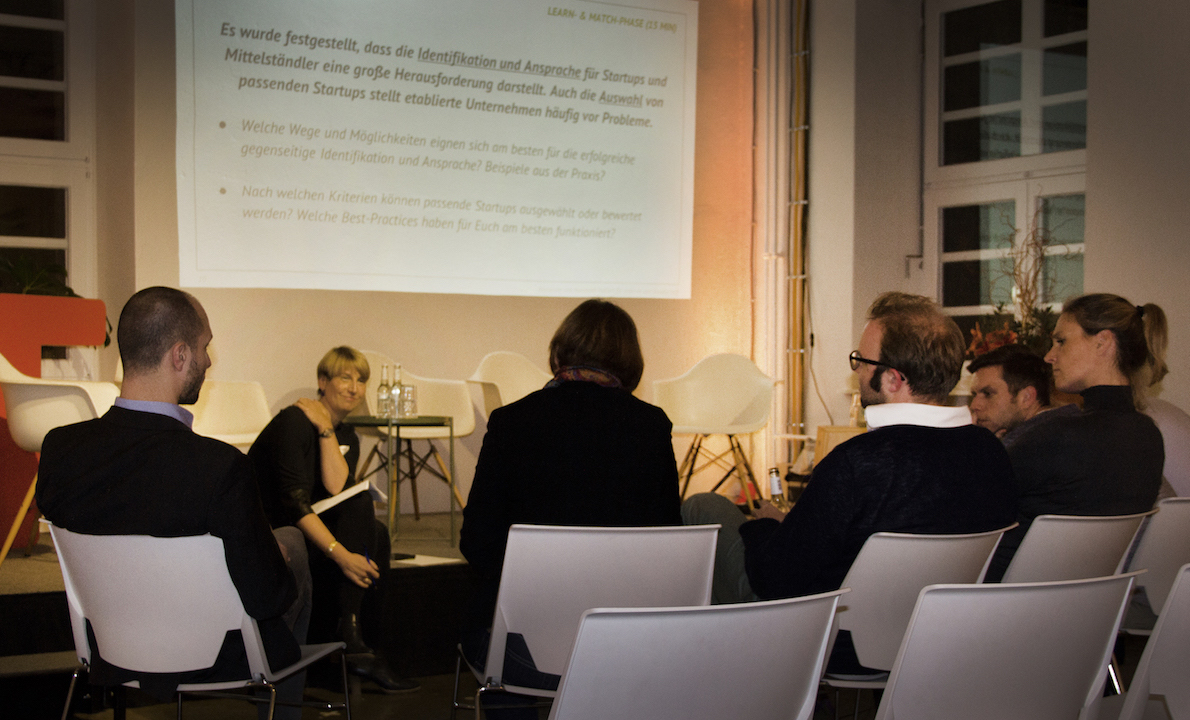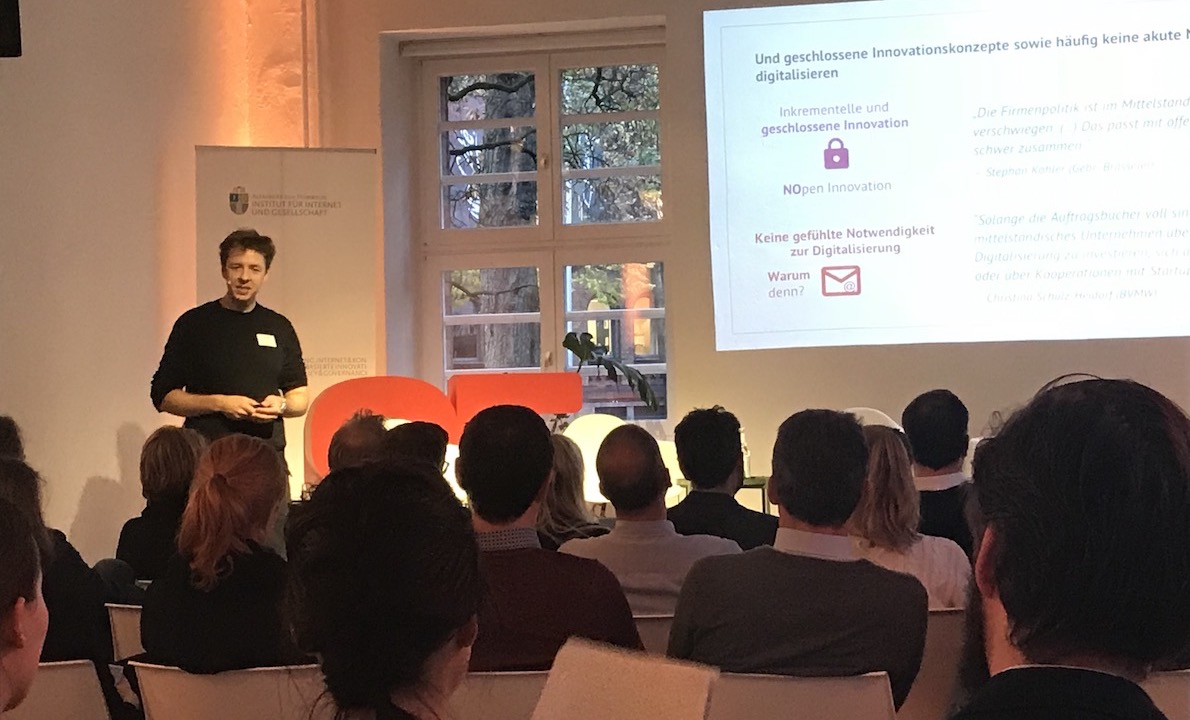Making sense of our connected world

Collaboration between startups and mid-sized companies. Learn. Match. Partner.
When startups and mid-sized companies meet, two worlds collide. Startups are the main driver of digitization but inexperienced, while mid-sized companies do have experience but lack digitization expertise. Collaboration between both holds great potential for the German economy. Our new study “Collaboration between startups and mid-sized companies. Learn. Match. Partner.” shows how startups and mid-sized companies can realize this potential, achieve their goals and overcome barriers. Prof. Dr. Martin Wrobel presented the results and recommendations for action on 15 November 2017 to about 60 participants at an event at Digital Spielfeld Hub.
The following panel discussion, moderated by Prof. Dr. Dr. Thomas Schildhauer (HIIG), with the experts Nora Heer (Loopline Systems), Frank Kirchner (S-Kreditpartner), Michael Hoffmann (Visa Inc. and Spielfeld Digital Hub) and Philipp Leutiger (Roland Berger) focussed on the question how collaboration between startups and mid-sized companies can become a success. Afterwards, all participants discussed the collaboration phases learn, match, and partner, as well as similarities and differences between Germany and the United States in four different workshops.
Read the complete publication (in German)
During the group discussions, the participants considered the importance of defining the right criteria to measure the success of partnerships right from the beginning. Another topic that came up was communication on an equal footing, which was regarded as a crucial foundation for long-term cooperation. The workshop on similarities and differences between the US and Germany came to the conclusion that universities play a big role in laying the groundwork for entrepreneurship. A more interdisciplinary approach and the chance for students to try new things could be a chance for German higher education to increase entrepreneurial activities.
The event’s participants included founders of startups such as Ambi-Vation, Loopline Systems, DaWanda, mStats & impact·distillery, Granny Aupair, vjsual, Octorank, Revolut, managers and directors of mid-sized companies and corporates like S-Kreditpartner, Francotyp-Postalia, Axel Springer Digital, BSH Hausgeräte, Quadriga Media Berlin, Targobank, Unicredit, IEE S.A., as well as representatives of other organizations such as German Association for Small and Medium-sized Businesses, Senate Department for Economy, Energy and Businesses of Berlin, The Berlin School of Economics and Law, and Free University of Berlin.
| The website presenting the study’s results includes an executive summary and slides in English. |
| This post represents the view of the authors and does not necessarily represent the view of the institute itself. For more information about the topics of these articles and associated research projects, please contact info@hiig.de. |
This post represents the view of the author and does not necessarily represent the view of the institute itself. For more information about the topics of these articles and associated research projects, please contact info@hiig.de.

You will receive our latest blog articles once a month in a newsletter.
Digital future of the workplace
Escaping the digitalisation backlog: data governance puts cities and municipalities in the digital fast lane
The Data Governance Guide empowers cities to develop data-driven services that serve citizens effectively.
Online echoes: the Tagesschau in Einfacher Sprache
How is the Tagesschau in Einfacher Sprache perceived? This analysis of Reddit comments reveals how the new simplified format news is discussed online.
Opportunities to combat loneliness: How care facilities are connecting neighborhoods
Can digital tools help combat loneliness in old age? Care facilities are rethinking their role as inclusive, connected places in the community.

